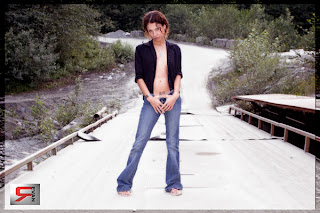
I have always had a healthy interest in politics—I listen to politicians in moderation and exercise my right to vote. In high school social studies, I delighted in composing cheesy jokes about party whips and large caucuses. I also admired Jean Chretien, not always for his stance on issues or the ethics of his party but for his all-out crazed toughness. He could crush a protestor’s face and take a pie in his own just as easily.
So when Chretien left and the Liberal torch was passed, I didn’t envy the party for having to replace him. Where could they find someone as tough as him? Certainly not wimpy Paul Martin.
Now Stephane Dion is the federal Liberal Party leader—and he seems to be the final nail in the Liberal coffin. The Liberals need a leader who can communicate with the people, especially now when their popularity has waned so much. Dion might actually be a great choice, but the English-speaking public has no idea because we can’t understand what the hell he is saying. Where Chretien made up for his lack of English fluency with strength and charisma, Dion comes across as a scared bleating lamb.
But, to give him some credit, Dion is to the English as Stephen Harper is to the Canadian French. After the Liberal Party elected Dion last year, I thought they had failed miserably with their choice of candidate. But then I attended a press conference held by our current prime minister, Harper. During this conference he announced funding for Fraser Valley dike rehabilitation, and then took (carefully selected) questions from reporters. A Quebecois reporter queried Harper: Harper had him repeat the question, then stumbled through his garbled French response, tripping over every word. He looked like an idiot.
So, one could argue that it is not he who speaks the best English but he who leads the country the best. But then one could retort with the fact that the English population outweighs the French by millions, so it is the Anglophones who overrule. I will just remind people to be patient when dealing with those with strong, muddled accents because they may actually have something significant to say—you’ll just need an interpreter.
So when Chretien left and the Liberal torch was passed, I didn’t envy the party for having to replace him. Where could they find someone as tough as him? Certainly not wimpy Paul Martin.
Now Stephane Dion is the federal Liberal Party leader—and he seems to be the final nail in the Liberal coffin. The Liberals need a leader who can communicate with the people, especially now when their popularity has waned so much. Dion might actually be a great choice, but the English-speaking public has no idea because we can’t understand what the hell he is saying. Where Chretien made up for his lack of English fluency with strength and charisma, Dion comes across as a scared bleating lamb.
But, to give him some credit, Dion is to the English as Stephen Harper is to the Canadian French. After the Liberal Party elected Dion last year, I thought they had failed miserably with their choice of candidate. But then I attended a press conference held by our current prime minister, Harper. During this conference he announced funding for Fraser Valley dike rehabilitation, and then took (carefully selected) questions from reporters. A Quebecois reporter queried Harper: Harper had him repeat the question, then stumbled through his garbled French response, tripping over every word. He looked like an idiot.
So, one could argue that it is not he who speaks the best English but he who leads the country the best. But then one could retort with the fact that the English population outweighs the French by millions, so it is the Anglophones who overrule. I will just remind people to be patient when dealing with those with strong, muddled accents because they may actually have something significant to say—you’ll just need an interpreter.






